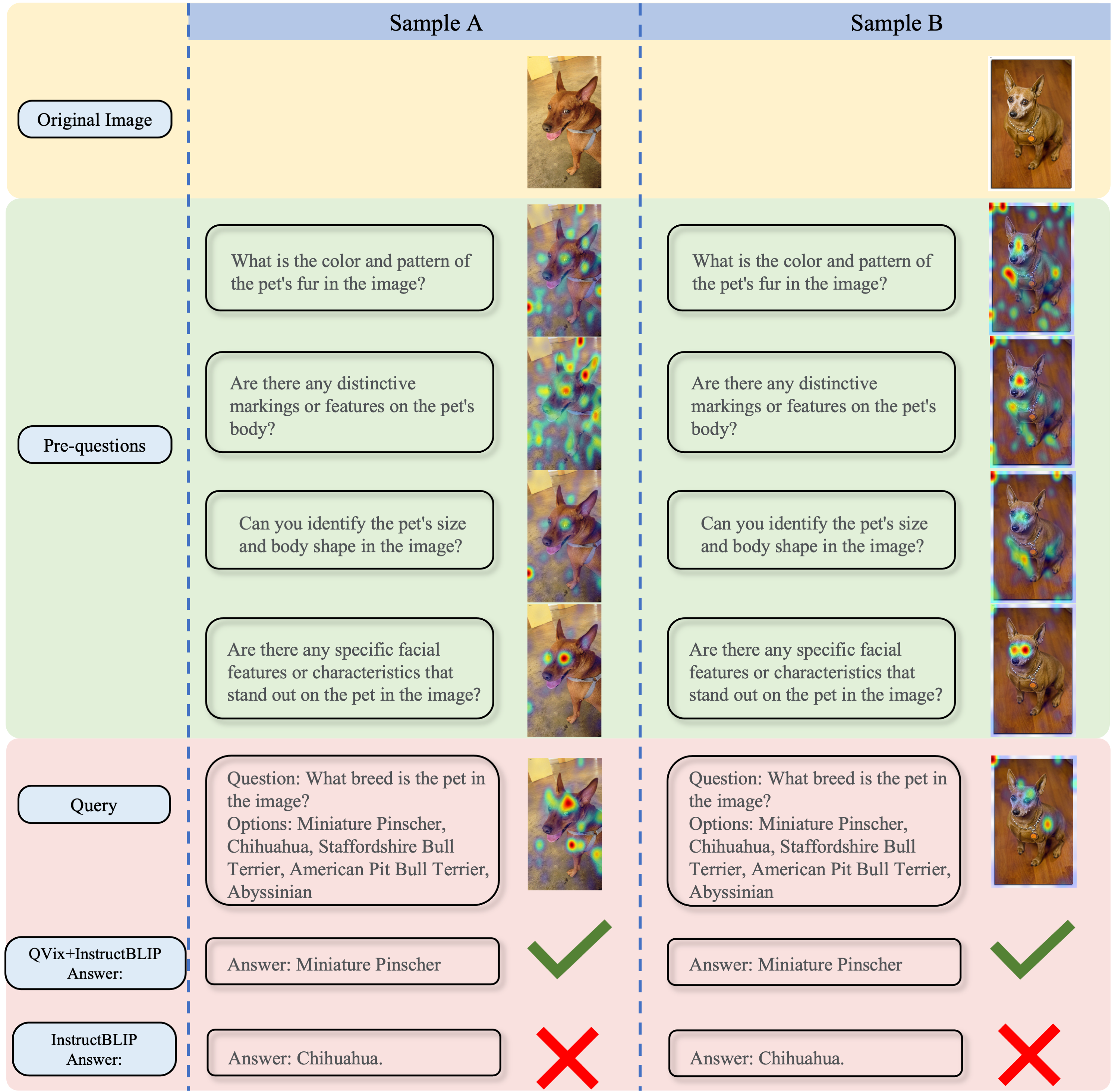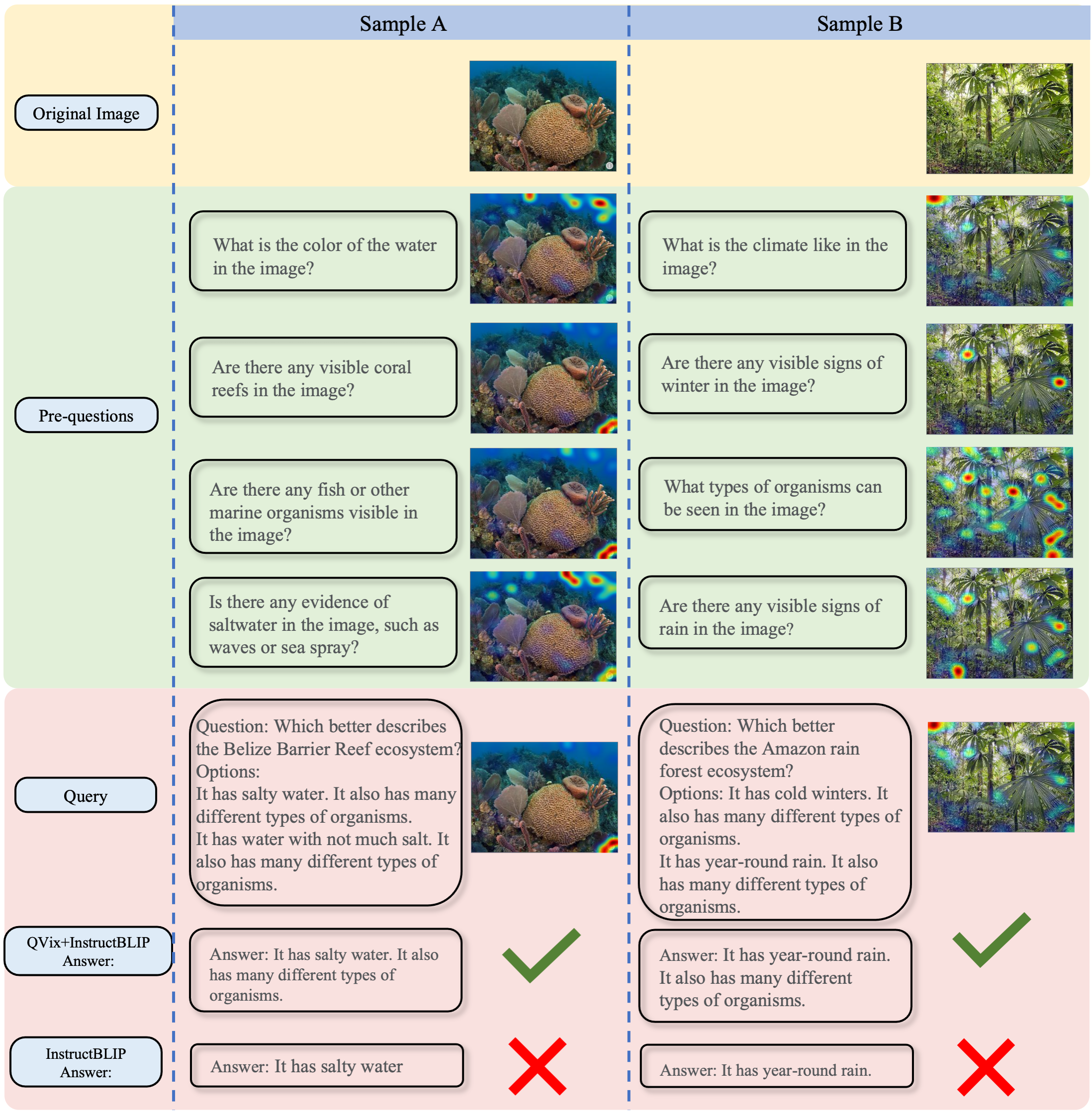Good Questions Help Zero-Shot Image Reasoning
QVix leverages LLMs' strong language prior to generate input-exploratory questions with more details than the original query, guiding LVLMs to explore visual content more comprehensively and uncover subtle or peripheral details. QVix enables a wider exploration of visual scenes, improving the LVLMs’ reasoning accuracy and depth in tasks such as visual question answering and visual entailment.
QVix can utilize detailed information to better distinguish between options that are easily confused, and achieve a more comprehensive and systematic understanding of images through contextual information.
1. Installation
Git clone our repository and creating conda environment:
git clone https://github.com/kai-wen-yang/QVix.git
cd QVix
conda create -n QVix python=3.10
conda activate QVix
pip install -r requirements.txtAdd directory to PYTHONPATH:
cd QVix/models
export PYTHONPATH="$PYTHONPATH:$PWD"2. Prepare dataset
You should replace the variable DATA_DIR in the task_datasets/__init__.py with the directory you save dataset.
SciencQA: in initialing the ScienceQA dataset, the python script will download the test split of ScienceQA from huggingface directly and then saving the samples with image in provided DATA_DIR.
3. Run QVix
Run QVix on ScienceQA:
python tools/eval.py \
--model_name InstructBLIP7B \
--batch_size 4 \
--dataset_name ScienceQA \
--device 0 \
--expname 'QVix' \
--sample_num 1000 \
--task_name vqa_gpt \
--prompt prompt_hand_v1 \
--question 'Question: {}Answer:' \
--api_key
--model_name: The used LVLM
--prompt: The pre-question generation prompt
--api_key: Your openAI key
- Release the data and evaluation code on image classification.
- Release the data and evaluation code on visual entailment.
Please consider citing our paper if you think our codes, data, or models are useful. Thank you!
@misc{yang2023good,
title={Good Questions Help Zero-Shot Image Reasoning},
author={Kaiwen Yang and Tao Shen and Xinmei Tian and Xiubo Geng and Chongyang Tao and Dacheng Tao and Tianyi Zhou},
year={2023},
eprint={2312.01598},
archivePrefix={arXiv},
primaryClass={cs.CV}
}


